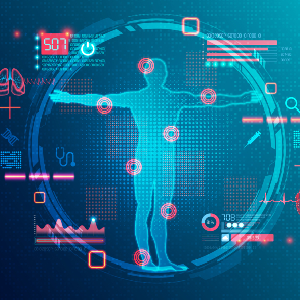
Knowledge truly is power, and at no time in human history have people had more access to information than they do today. Thanks to the internet, ordinary citizens can instantly access enormous volumes of data on pretty much any topic they wish to explore, no matter how esoteric it may be.
However, the real value of the information age is nowhere more evident than in the domain of healthcare. Indeed, Big Data is revolutionizing the practice of medicine today. This article describes some of the most significant advantages of unleashing the enormous power of Big Data in healthcare.
Optimizes Quality of Care
Of the myriad of benefits from using Big Data in healthcare, the most significant pertain to the issue of patient quality of care. Big Data gives healthcare providers instant access to the patient’s comprehensive medical history through the electronic records systems. This not only helps to expedite care, but also to enhance its safety and efficacy.
Clinicians, for instance, can instantly be alerted to a history of adverse reactions or treatment failures for that particular patient and can adjust their treatment strategy accordingly. Perhaps most importantly, healthcare data analytics enable healthcare providers to make more accurate diagnoses and more effective treatment decisions based on literally billions of data points.
Innovations in data analytics technologies are also decreasing the likelihood that clinicians will experience “data analysis paralysis,” the effect of too much information being processed at once. For example, automated data visualization tools help practitioners analyze and utilize massive volumes of data by converting numerical information into visual form. This ensures that data isn’t just accessible, accurate, and abundant, but also useful.
Improves Healthcare Marketing
To be sure, the central mission of any healthcare practice is to help and heal patients and their families. Ultimately, though, any practice is still a business, and in order for that business to survive, the enterprise needs patients.
This is yet another arena in which the enormous benefits of Big Data shine through. Not only does Big Data serve to dramatically improve the overall quality of patient care, but it also increases clinicians’ capacity to engage with existing and prospective patients.
Big Data, for example, is proving to be especially beneficial in healthcare marketing initiatives, equipping practitioners with the information they need to better serve their target market.
Healthcare marketing data can help clinicians and administrators better understand health consumers’ experiences and expectations. This in turn allows decision-makers to formulate strategies that will better serve the needs of patients and their families.
This might include the provision of new services not offered by the clinic’s nearest rivals but much in demand by the target patient population. Or it might involve changes to the clinic’s operating model. For instance, based on market data analytics, clinicians may institute weekend and evening hours for consumers expressing a desire to receive care outside of traditional business hours.
These marketing data can also provide valuable insight into best practices for engaging with target patient populations. The research may reveal, for example, that patients are more likely to use social media than traditional media to research a prospective healthcare provider. A clinician’s marketing team might then leverage these insights to shift their focus, and resources to social media promotions, consumer engagement, and brand building.
Enhances Management Practices
As shown, healthcare is ultimately a business. In order for practices to survive and for clinicians to be able to continue to serve their patients, the money motive can’t be dismissed.
Fortunately, Big Data can provide immense benefits for healthcare providers in this arena as well. For example, Big Data can be used to analyze the overall internal health of the organization and predict future market trends.
This in turn enables administrators and other decision-makers to formulate data-driven management strategies that will increase efficiency, revenue growth, and resiliency. The result is a leaner, higher performing, and more profitable institution that can better withstand the shocks that have been so prevalent in the healthcare market of late.
Drives Research and Development
Medicine, as every practitioner knows, is both an art and a science. As such, healthcare providers have come to depend on technological innovation to enhance patient care. Big Data often plays a key role in this process, providing invaluable insights that can be parlayed into new research and development opportunities.
For example, Big Data is playing an increasingly important role in strategies to improve healthcare apps, as well as health wearables and related technology. The result is greater functionality, security, and accessibility— all of which are critical to optimizing patient care while supporting efficiency and profitability within the health system.
The Takeaway
The incredible power of information has transformed the modern world. Nowhere is this more evident or important than in the arena of healthcare. Big Data in healthcare is proving instrumental in enhancing the quality of patient care, supporting health marketing, improving clinical management, and galvanizing health technology research and development.
